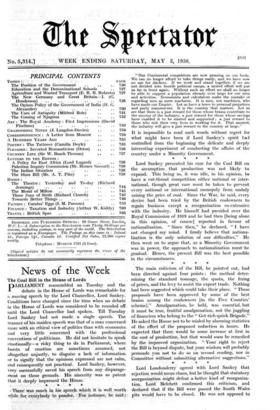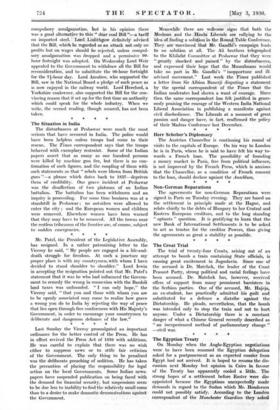Lord Londonderry - agreed with Lord Sankey that rejection would mean
chaos, but he thought that statutory reorganization- might defeat a better kind of reorganiza- tion. -Lord Melchett confirmed this criticism, and declared that if the Bill were passed the South Wales pits would have to be closed. He was not opposed to compulsory amalgamation, hut in his opinion there was a good alternative to this "dear coal Bill "—a tariff on imported steel. Lord Linlithgow definitely advised that the Bill, which he regarded as an attack not, only on profits but on wages should be rejected, unless compul- sory amalgamation was dropped and a permissive 90- hour fortnight was adopted. On Wednesday-Lord- Weir appealed to the Government to withdraw all the Bill for reconsideration, and to substitute the 90-hour fortnight for the 7i-hour day. Lord Amulree, who supported' the Bill, saw in the National Board a pledge of such peace as is now enjoyed in the railway world. Lord Hereford, a Yorkshire coalowner, also supported the Bill for the con- vincing reason that it set up for the first time an authority which could speak for the whole industry. When we write, the second reading, though assured, has not been taken.
* *















































